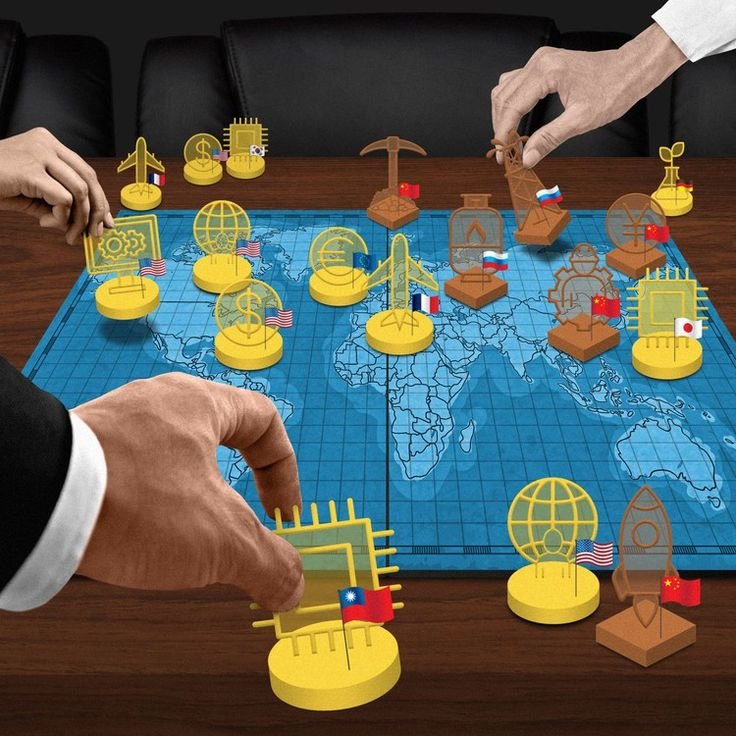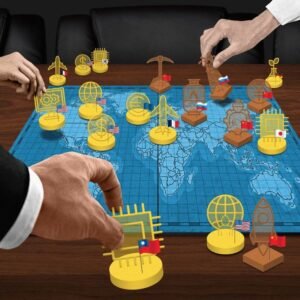FishersFind Global Brief: Key Political Shifts Shaping the World Today
In today’s rapidly evolving global landscape, political shifts are reshaping the world in profound ways. From changing alliances and policy shifts to the emergence of new geopolitical powers, understanding the most important political trends is crucial for businesses, governments, and individuals navigating an increasingly complex international system. FishersFind takes a closer look at the key political shifts that are influencing the world today, providing insights into their long-term implications.
The Rise of Multipolarity: A Shift Away from U.S. Dominance
For decades, the United States played a central role in global geopolitics, but the rise of multipolarity is signaling a shift in global power dynamics. Multipolarity refers to a world where multiple countries or regions exert significant influence on global politics, diminishing the dominance of any single superpower.
Countries like China, India, and Russia are asserting themselves on the global stage, challenging U.S. leadership in areas like trade, technology, and military strategy. China’s Belt and Road Initiative, a multi-billion-dollar infrastructure project, is expanding its influence across Asia, Europe, and Africa, positioning China as a key global player.
India, with its growing economic and military power, is increasingly seen as a strategic counterbalance to China in the Indo-Pacific region. Meanwhile, Russia, despite facing international sanctions, has leveraged its energy resources and military presence to influence European and Middle Eastern politics. This shift toward a multipolar world suggests a move away from U.S.-led global institutions, prompting the need for a more diverse approach to international governance.
Climate Change and Environmental Policy: The New Global Political Battleground
Climate change has emerged as one of the most pressing political issues of our time. As the effects of global warming become more apparent, countries around the world are reevaluating their environmental policies and commitments to reducing carbon emissions.
In the United States, the Biden administration has rejoined the Paris Agreement and implemented sweeping climate policies, including efforts to transition to renewable energy and reduce emissions from the transportation sector. The U.S. is positioning itself as a leader in global climate diplomacy, urging other nations to follow suit.
On the other hand, countries like China and India, major emitters of greenhouse gases, face significant pressure to balance economic growth with environmental responsibility. China, in particular, has committed to reaching carbon neutrality by 2060, but its reliance on coal and other fossil fuels remains a challenge in meeting these goals.
Europe, under the leadership of the European Union, is also at the forefront of climate action, with the Green Deal aiming to make the region carbon-neutral by 2050. The political significance of environmental policy cannot be overstated, as it influences everything from trade relationships to national security strategies. As climate change accelerates, it will become an even more important driver of international relations.
The Rise of Authoritarianism: A Threat to Global Democracy
While democracy has historically been seen as the prevailing political system, recent trends indicate a shift towards authoritarianism in several parts of the world. From Hungary and Poland in Europe to Brazil and Russia, leaders with authoritarian tendencies are consolidating power and undermining democratic institutions.
In Turkey, President Recep Tayyip Erdoğan has increasingly centralized authority, curtailing political opposition and press freedoms. In Russia, Vladimir Putin’s long-standing control over the government and crackdown on political dissent have raised concerns about the future of democratic values in the region. Similarly, in countries like Myanmar and Belarus, military coups and the suppression of democratic movements have highlighted the fragility of political systems in certain parts of the world.
The rise of authoritarianism presents a challenge to the global order, as these regimes are often less inclined to cooperate on international issues like human rights and conflict resolution. At the same time, they create opportunities for geopolitical rivalry, as authoritarian governments seek to align themselves with one another in opposition to Western liberal democracies.
The Reshaping of Trade Relationships: Protectionism and Economic Nationalism
Trade relationships are undergoing significant changes as countries increasingly embrace protectionist policies and economic nationalism. In the wake of the COVID-19 pandemic, many nations have reexamined their reliance on global supply chains and are now pursuing policies aimed at reducing dependence on foreign markets.
The U.S., under President Donald Trump, initiated a trade war with China, imposing tariffs on hundreds of billions of dollars’ worth of goods in an effort to reduce the trade deficit and protect American industries. While the Biden administration has taken a more diplomatic approach, it continues to scrutinize China’s trade practices and address issues related to intellectual property theft and market access.
Similarly, the United Kingdom’s decision to leave the European Union has led to the reconfiguration of trade relationships between the UK and its former EU partners. Brexit has resulted in new trade barriers and customs procedures, affecting industries like agriculture, manufacturing, and finance.
Economic nationalism is also gaining traction in emerging economies, as countries seek to protect domestic industries from foreign competition. This trend is reshaping the global trade system, with potential long-term implications for international cooperation and economic growth.
The Impact of Technology on Global Power Structures
Technology is a driving force behind many of the political shifts we’re witnessing today. The rise of digital technologies, from artificial intelligence (AI) to blockchain, is not only transforming the way we live and work but also reshaping the balance of global power.
Countries like the United States and China are locked in a technological rivalry, with both sides seeking to dominate emerging technologies like 5G, AI, and quantum computing. The competition for technological supremacy has implications for national security, economic power, and geopolitical influence.
China, for example, has invested heavily in AI and is positioning itself as a leader in the development and deployment of autonomous technologies. In the U.S., companies like Google, Microsoft, and Apple are at the forefront of technological innovation, while the government grapples with issues related to cybersecurity and data privacy.
At the same time, the rise of cryptocurrency and blockchain technology is challenging traditional financial systems and presenting new opportunities for decentralized governance. Countries are beginning to consider how these technologies can be regulated and integrated into the global economy, signaling a shift in how power is distributed in the digital age.
The Changing Landscape of Global Alliances
The shifting global political landscape has led to the reformation of international alliances and the decline of traditional diplomatic agreements. The United States, traditionally the leader of Western alliances, has seen its role in organizations like NATO and the United Nations come under scrutiny.
In Asia, the Quadrilateral Security Dialogue (Quad), which includes the U.S., India, Japan, and Australia, is emerging as a counterbalance to China’s growing influence in the Indo-Pacific. Similarly, the European Union is grappling with internal divisions, as nationalist movements in countries like Hungary and Poland challenge the unity of the bloc.
Meanwhile, the rise of alternative international organizations, such as the Shanghai Cooperation Organization (SCO) led by China and Russia, signals a shift away from Western-led institutions. These changes are reshaping the global diplomatic landscape, forcing countries to rethink their alliances and strategies in response to the rise of new geopolitical realities.
Conclusion: Adapting to a New Political Reality
The political shifts shaping the world today are multifaceted and interconnected. From the rise of multipolarity and climate change politics to the rise of authoritarianism and economic nationalism, the global political landscape is in flux. For businesses, governments, and individuals, understanding these changes and adapting to them is essential for thriving in the new global order.
As countries and regions navigate these shifts, the ability to form flexible, strategic alliances, prioritize sustainability, and embrace technological innovation will be key to securing a prosperous future in the ever-changing world of global politics.







